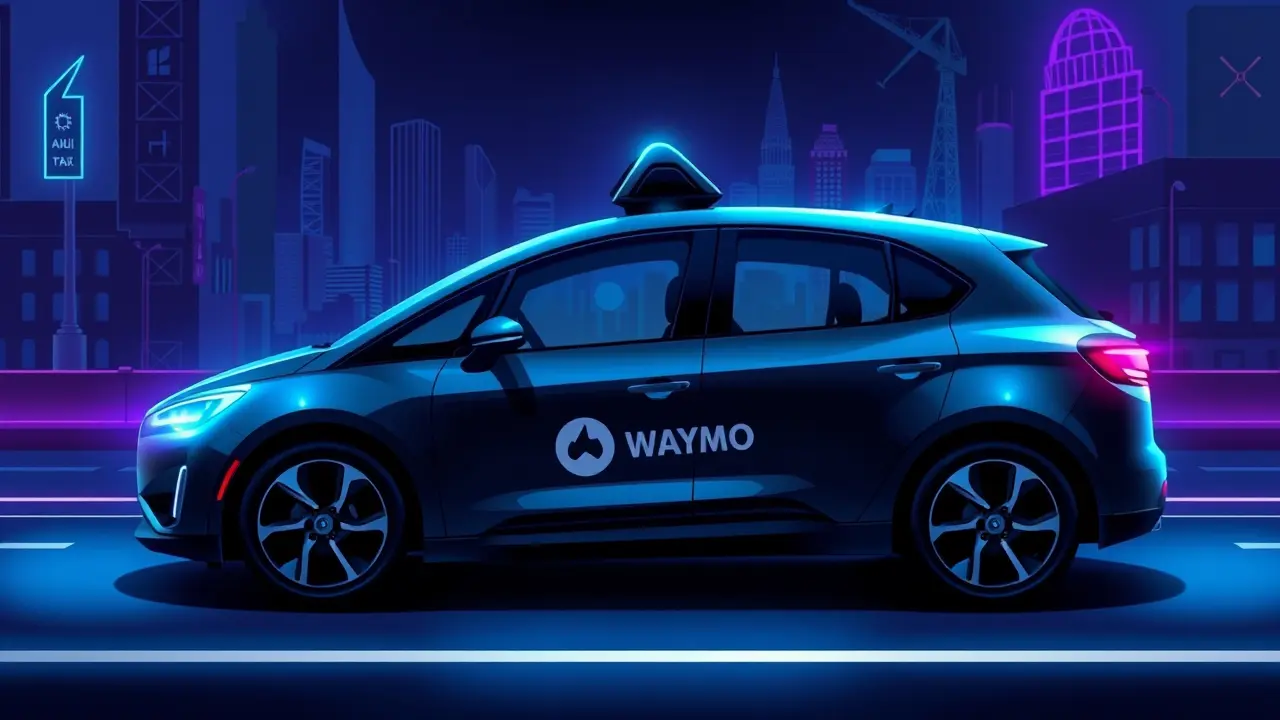Waymo to Launch Robotaxi Service in London by 2026
The announcement that Waymo will launch its robotaxi service in London by 2026 is not merely a corporate expansion; it is a strategic gambit with profound implications for urban mobility, regulatory frameworks, and geopolitical tech dominance, a development that demands a risk-focused analysis of the potential scenarios unfolding from this single decision. While the initial foothold was established through the 2019 acquisition of the UK-based AI firm Latent Logic, a move that provided Waymo with crucial simulation technology and a beachhead in European regulatory circles, the full-scale deployment represents a calculated escalation in the global autonomous vehicle race.The London environment itself is a high-stakes testing ground—a dense, ancient, and complex labyrinth of narrow streets, unpredictable weather, and arguably the world's most demanding drivers, a stark contrast to the sun-drenched, geometrically ordered avenues of Phoenix or San Francisco where Waymo has honed its operations. From a risk-analyst's perspective, the primary shockwave will ripple through the traditional transportation sector, potentially destabilizing the iconic black cab industry and ride-hailing giants like Uber, which now face an existential competitor that operates on a fundamentally different economic model devoid of a human driver's salary, benefits, and limitations.The political and regulatory scenario planning is equally fraught; Transport for London (TfL) and the UK Department for Transport will be thrust into the global spotlight, forced to navigate a minefield of public safety concerns, data privacy issues, and insurance liability in the event of the inevitable—though statistically rare—incident. One must consider the precedent of other tech rollouts in the city: the Congestion Charge was controversial but ultimately accepted, while the cycle superhighways faced protracted battles.The success or failure of Waymo's London deployment will serve as a crucial case study for the entire European Union, potentially accelerating or stymieing similar initiatives in Paris, Berlin, and Rome. Furthermore, this move is a direct challenge to Chinese AV companies, which are advancing rapidly but face greater political headwinds in Western markets; a successful London launch would grant Waymo and its parent company Alphabet an almost unassailable position as the de facto global standard-bearer.However, the downside risks are significant. A major software glitch or a high-profile accident could trigger a regulatory moratorium not just in the UK, but across the continent, setting the entire industry back by years and erasing billions in market valuation.Public acceptance is the ultimate variable; will Londoners embrace the silent, driverless vehicles, or will they be viewed with suspicion and protest? The 2026 timeline is aggressive, leaving little room for error in a city known for its bureaucratic inertia and robust public debate. In the grand chessboard of technological disruption, Waymo's move into London is a bold play for the center, a bet that the rewards of conquering one of the world's most difficult urban landscapes will outweigh the immense and multifaceted risks involved.
Latest News
The charts are whispering what the true believers have felt in their bones for weeks—Dogecoin is carving out a bottom.
17 hours ago5 comments
The Institute for Fiscal Studies has thrown a stark warning onto Rachel Reeves's desk, urging the Chancellor to confront a potential £22 billion shortfall in
17 hours ago3 comments
Alright, let's break down this absolute heater of a performance from the Chicago Blackhawks, because if you missed this one, you missed a party.
17 hours ago5 comments
The ice was hot last night in the NHL, folks, serving up a slate of games that felt less like a regular season Tuesday and more like a playoff preview with a
18 hours ago3 comments
The XRP chart is painting a tantalizing picture for those with the stomach to withstand the relentless pressure from crypto's leviathans.
18 hours ago4 comments
It’s in the small shifts, the quiet recalibrations of a Thursday morning, where the most meaningful change often takes root.
18 hours ago4 comments
In a move that sent ripples of quiet confidence through the crypto ecosystem, blockchain intelligence firms tracked a monumental treasury allocation from
18 hours ago4 comments
In a move that would have drawn a nod of approval from historical figures like Churchill, who understood the delicate balance of power within democratic
18 hours ago2 comments
JA
Jamie Carter123k24 hours ago
london drivers are crazy good luck to the robots with that 😂 idk if i'd trust a car with no steering wheel tbh
0
JA
Jamie Lowe123k1 day ago
this reminds me of when they first introduced the congestion charge and everyone lost their minds. fascinating how this tech always seems to get tested in the most difficult cities first, feels like we're the guinea pigs again tbh
0
JA
Jamie Carter123k1 day ago
london drivers are a whole different beast good luck with that
0
EL
Elara Vance123k1 day ago
the hum of a new london dawn, not from engines but from algorithms dreaming. these silent cars will write their own poetry on the old, wet streets. i wonder what verses the rain will whisper back to their sleek, unblinking eyes.
0
